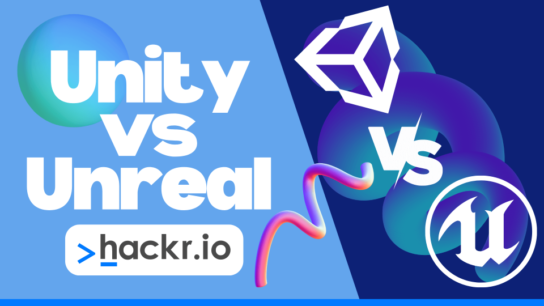Yea… Still no details at the moment.
Tim says it : “UE was develop with fortnite money”
It must have cost them millions per month to develop a software as complex as Unreal + Quixel…
I don’t have anything against them charging the automobile industry or others “non-game” products.
They run out of money and had to layoff 100+ people… Building a steady source of revenu could have prevented that.
The more UE become expensive, the better for Blender !! ![]()
I had my suspicions that this would happen. I think they made it free for a while to pull in the big companies to use the engine which is a good marketing strategy.
They need to pay their employees especially with the recent layoffs so I hope they come up with a good price that is affordable for all the different tiers. I wish them the best. Unreal Engine has been a lot of fun to use but I might be returning back to Blender especially by 2024 when we would be having Eevee Next and an even faster Cycles X.
I don’t think ppl will be offended if there make ue5 subscription based starting from 2024. Its also smart that Tim is giving a heads up before they make an official announcement. From the comments in the youtube video, ppl seem to be onboard with it if the price is reasonable but I think it should remain free for hobyist and freelancers unless they use it for commercial purposes if the project they use it for pays above a certain amount they pay a certain percentage to Epic.
I am wondering if it will remain free for freelancers and indies but big companies in industries apart from games will have to start paying like the automobiles and big TV corporations using UE5 for their movies and set dressings.
Another thing is if the older ue5 versions before 2024 would still be free to use but the newer versions are paid going forward. Wonder if UE6 will be released next year though I doubt it.
I also think Godot is going to see a high influx of users with this announcement from ue5. It kinda shows why opensource apps are important. I am very grateful to Blender devs for keeping Blender alive all these years. This subscription thing will never happen to Blender or Godot so it gives new people a chance to get their foot in the door in the 3d industry which they would have never gotten.
1 Like
Epic I think will at least avoid repeating Unity’s mistake and start sending invoices to UE users on the current version. The least they can do is at least arrange for Unreal 5.3 to be an LTS version that will eventually become a very stable sendoff for the free licensing. This fortunately should not be a case where the music stops playing and the users are left high and dry.
Though I do agree that this was probably coming. Unreal’s licensing was free because it was subsidized by both Fortnite and Tencent. Fortnite meanwhile has been in decline amid its ambiguous development (what is it supposed to be exactly, a fort builder, creative app, battle royale, or just whatever is hot right now, even Burger King is more stable in its direction?) and the fact that is no longer a brand new game. Tencent meanwhile has had to deal with popping economic bubbles as well as a major video gaming crackdown in its home country of China.
1 Like
It would be cool if they did that. Well, lets see what happens then.
I think a lot of people are going to stop using corporate products as far as the 3d industry is concerned especially in the indie sphere. They are not worth investing your time and money into especially with what happened with Unity and now Unreal. They are not reliable as they can change their TOS or pricing anytime whereas with opensource, that will never happen.
Hopefully, more people become aware of this and start donating towards opensource development as supporting these devs with donations means everybody wins. I sincerely wish Epic the best with Unreal Engine.
1 Like
And how exactly any possible price changing for game engine will affect blender?
They have been paying millions to use Unreal Engine already.
1 Like
There is also information out there suggesting that Unreal 5’s new pricing will not impact those who use the engine to make games (which makes sense if you take into account that game creators are the most likely to hit the threshold needed to start paying royalties). Those who want to use UE5 as a DCC app. of sorts or currently do so may still be out of luck.
We also need to take into account the fact that Unreal 4 started as a subscription-based product (in which even then represented a nearly 100 percent price drop from legacy Unreal versions which once licensed for hundreds of thousands of dollars). Creators should feel fortunate that a AAA game company allowed them to have the opportunity to run critically acclaimed software on their PC at all for an affordable price. Even a move to Autodesk-level pricing would still be a roughly 90 percent drop from how much studios needed to spend to get Unreal 3, if that is the case then the BF will have made good timing for Eevee Next.
With any luck it will either have an indie friendly price in line with the initial reveal of Unreal 4 (before the creation of the Fortnite gold mine) or it will have an indie license (which may or not make cuts to Nanite and Lumen, especially Nanite since there is no competing product with something similar).
1 Like
Game engines are being used by more than just game developers. I recall there was a discussion here a few months back on how a lot of environment artists were moving to Unreal for their real-time engine.
I completely forgot about how UE4 was initially a subscription-based service when I first heard about it. I remember the sheer excitement I had when I learned that it was going to basically be free soon after. Probably explains why people aren’t reacting as strongly to this as Unity’s recent attempts at monetization, maybe people have longer memories than I often give them credit for in the game dev community.
Still, this is yet another reminder that, unless you are working for some university, client or company willing to foot the bill on these expensive subscriptions, you really shouldn’t have to pay for software just to make experimental or hobbyist digital art, just the hardware used to actually run the software. Especially considering how far things like Godot and Blender have come since the last time we had to pay monthly fees to Unreal.
Sweeney says in his keynote that he feels their current licensing model for game development is fundamentally sound. There aren’t going to be any changes there.
But they’ve allowed VFX and other industries to use Unreal basically completely free because those industries never release an ‘Unreal Engine Product,’ they release stuff that’s been rendered with Unreal Engine. The planned change there is to start charging a per-seat license for non-interactive industries that are using Unreal (and they’ve actually offered a $1,500/yr per-seat license with that in mind for a while now, it’s just been optional. The only reason to pay for it has been for UDN access which is much better than the Unreal Community Forums for getting answers.)
Many people use Unreal Engine to make archviz, cartoon, shorts…
Blender has never looked better, with features and performance.
But there has never been a market as competitive ![]()
-Unreal
-Plasticity
-Nomad
-Substance Modeler
-Cascadeur
-Etc…
All those new options affect Blender, Maya and others “established” 3D software.
As of now, FOSS does not have a robust ecosystem with tightly integrated I/O for the purpose of 3D work. For example, it has only been in recent years that a good quality FOSS solution for 3D games sprang up. For the rest it is either using Blender as the end-to-end studio in a box or dealing with a pile of subscriptions with Terms of Service and pricing that can change annually (since perpetual licensing is becoming a thing of the past).
FOSS is playing an essential role in challenging the rule of thumb that states “if it looks too good to be true, it is”, which actually has been the rule since great deals on software often came with gotchas and hidden catches such as a ban on using it for commercial projects.
Even though Unreal 5 will remain a ‘source available’ application for free if you do a game, we need to make sure the professional-grade FOSS ecosystem is in place if not only for the purpose of being a viable fallback.
1 Like
Welcome from 2024.
Guess what? Unreal is still free, and they’ve made a ton of stuff free in the Unreal Marketplace. They’ve also added an entire database of free character animations. Unreal will stay free, as long as it gets its royalties.
1 Like
Is it really free? lets see, source wise no, never was.
For the rest?
Revenues generated from sales in the Epic Games Store are royalty-free.
whoho you are right, if you exclusively sell on their store. (you still pay 12 % of revenue on the Epic Games Store)
If you’re using Unreal Engine for commercial purposes, have generated more than $1 million in the past 12 months, and are not creating a game or application that relies on engine code at runtime and will be licensed to third party end users, then a seat license fee is required.
Unreal Engine is free to use for students, educators, hobbyists, and most non-games companies making less than $1 million USD in annual gross revenue.
- For game developers and other users distributing applications that incorporate Unreal Engine code at runtime (such as a game) and are licensed to third-party end users, a 5% royalty is due if the lifetime gross revenue from that product exceeds $1 million USD; in this case, the first $1 million remains royalty-exempt.
- For other companies, if you earn over $1 million USD in annual gross revenue, you will need to buy Unreal Subscription seats. Unreal Subscription costs $1,850 per user per year, and includes Unreal Engine, Twinmotion, and RealityCapture.
- There are also options for custom terms that can include Epic Direct Support, private training, negotiated terms for lower royalties, and more.
In my country it would cost €2,050.37(+applicable taxes) per seat per year.
EDIT:
This is the release form which you must fill out before every release to even qualify for the above mentioned $1million in annual gross revenue”.
https://epicgames.formstack.com/forms/release_form
Its not free long term either since after a release, if your product generates more than $10.000 per quarter, you have to give a report for that quarter. a year has 4 quarters. That´s overhead costs on your dime.
The $10,000 is also the threshold per quarter where if you are above it, (after the 1million gross income while the product is being sold), you have to pay royalties and the royalty report.
Less than $10.000 and no reporting needed.
The royalty report;
https://epicgames.formstack.com/forms/royalty_report
3 Likes
I think non-gaming companies can still use 5.3 without a seat license in 2024, though.
We haven’t really used Unreal in the last few years, but we just had a client come in who probably wants to use it so I guess I need to check that.
Now, Nvidia still has infinite money (even though the AI bubble seems to be starting to burst), so Omniverse is still free for projects with teams of two (and this I’ve confirmed with an Nvidia rep).
1 Like
I don’t really see your point – if you’re generating enough money to trigger the royalty fee, I don’t think you’d have a problem forking over the cost of the seat(s). Companies have to make money to survive, Epic included, and they would be getting ripped off if a company made millions of dollars using their product and didn’t compensate Epic in some way.
So no, technically not free from a FOSS point of view, but if you don’t intend on making substantial amounts of money with UE, then you have nothing to worry about. Game companies, large corporations, etc., use other software that they have to buy seats for, so UE is no different.
1 Like
There’s a word for companies who have to hire people to do things, who don’t have a workable revenue/income model. They’re called: dead. ![]()
Let us not forget that a major reason Epic has been so generous with Unreal 5’s terms is because of the money they made when they captured lightning in a bottle with Fortnite.
Fortnite nowadays though has become pretty directionless as a project (not even close to what it was envisioned originally) and a large amount of recent revenue has actually come from lawfare against other tech. companies. If their revenue begins to decline then watch for the screws to tighten, this kind of tech. is not cheap to develop.



